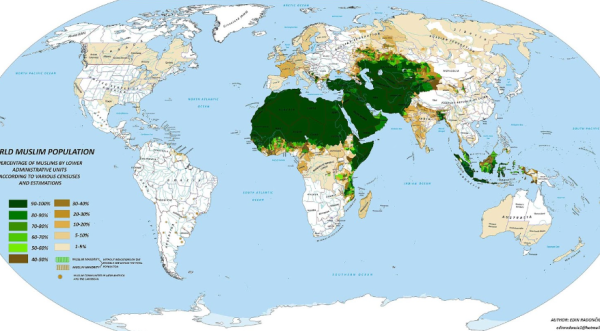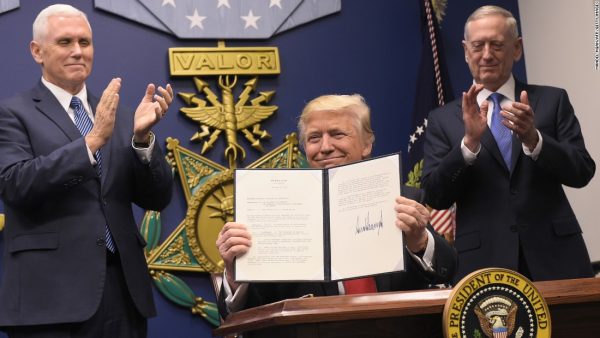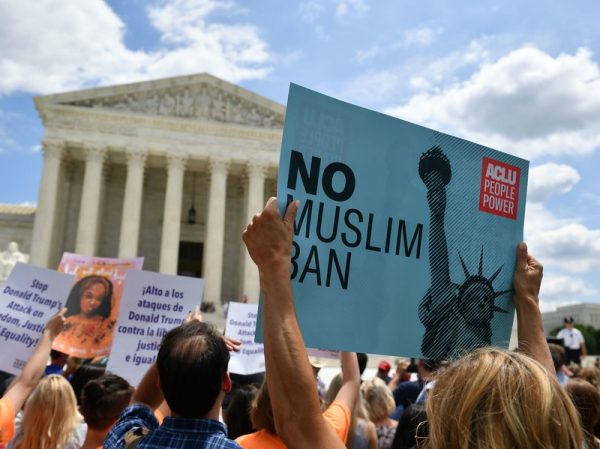On the week of January 23rd, 2017, then President Donald Trump signed three executive orders. These orders offended the rights of immigrants/refugees in the U.S. and globally. Then, on January 27th, Trump signed an executive order on refugees and visa holders from designated nations. This order stated that he was to protect our nation from “terrorist attacks by foreign nationals”. Visas to nationals from Iran, Iraq, Sudan, Syria, Somalia, Libya, and Yemen were all suspended. From this, the DHS was to expedite completion of an entry-exit tracking system. This was not all though. The order suspended the U.S. Refugee Program and there was a ban on Syrian refugees. Although this executive order has been revoked by current President Joe Biden, I chose to write about this because I feel as if this previous decision was completely out of line and not beneficial but instead offensive.
The Responses from the Muslim Countries
In 2017, in response to this newly enforced order, many Muslims felt targeted. Not only was this rule offensive towards people living in Muslim countries, it was threatening to everyday citizens in the U.S.

When looking into the ban, it’s seen that nations that experienced terrorism themselves weren’t listed. An example of this is Saudi Arabia, where the 9/11 hijackers originated. This showed that the ban was discriminating against certain religions and people.
According to security experts, since the 9/11 attacks, around 800,000 refugees have been resettled through the resettlement program and not one launched a terrorist attack on U.S. soil.
Muslim countries felt as if this order proved the United States to be going against what they stand for, originally being an immigrant nation and a “safe haven.” It also seemed that long term allies of the United States would no longer want to be associated with Donald Trump.
The Responses from Other Countries
The order sought condemnation from the international community along with allies of the U.S.

It was expected that long term allies would no longer want to be associated with the U.S. Many senators and former presidents sided against then President Trump when this rule was first enforced, opposing the order. Meanwhile, certain known republicans, like Paul Ryan, felt as if the order was beneficial and helped our country to move in the right direction.
The British prime minister for example did not condemn the policy, stating that each country is responsible for what they decide to do. Although, it was known that she did not agree with Trump’s approach. The Canadian prime minister disagreed with the new order completely and would continue to allow refugees regardless of faith. Though other countries had a different approach, the Australian prime minister avoided speaking on the executive order completely, stating that it was not his job to criticize.
Going on to American’s perspective of the order, polls showed that 55% of Americans supported the ban even though Jihadist and Islamic terrorist groups were able to celebrate the order, as they believed the policy validated their claim of being at war with the United States.
People Who are Still Affected by the Order to This Day

When the executive order was first placed, the public did not take long to respond. Muslims were being immediately detained or turned away all over the country. After four years of the ban being placed, families continued to be separated. People who have been targeted by the ban are still affected to this day, after applying multiple times for the Diversity Visa Program and currently still waiting for a response. Although the ban was reversed on President Joe Biden’s first day in office, the order still continued to have an effect on American citizens and those who remain separated from loved ones. As for the Diversity Visa Program, it’s been proven that applicants who were denied entry during the ban would have to re-apply and had a little to no chance of being selected once again. No matter if the ban has been reversed, Muslims continue to have their right of traveling revoked from the lasting effect. You cannot reverse the fact that people were harmed and negatively affected by the ban in the first place. They never received justice for how they were treated. As time goes on so do empty promises.
Overall, the 90 day ban was something that cannot be forgotten. It has negatively impacted many and left a long lasting impression on the United States. We have not been seen as an immigrant nation for a long time and are definitely no longer seen as a “safe haven”. Regardless of the executive order being reversed, the number of people who have been affected by it to this day will never lessen. In addition, the amount of people who supported and followed Trump in his decision, regardless of how many people it hurt, is simply unjust and unfair.






